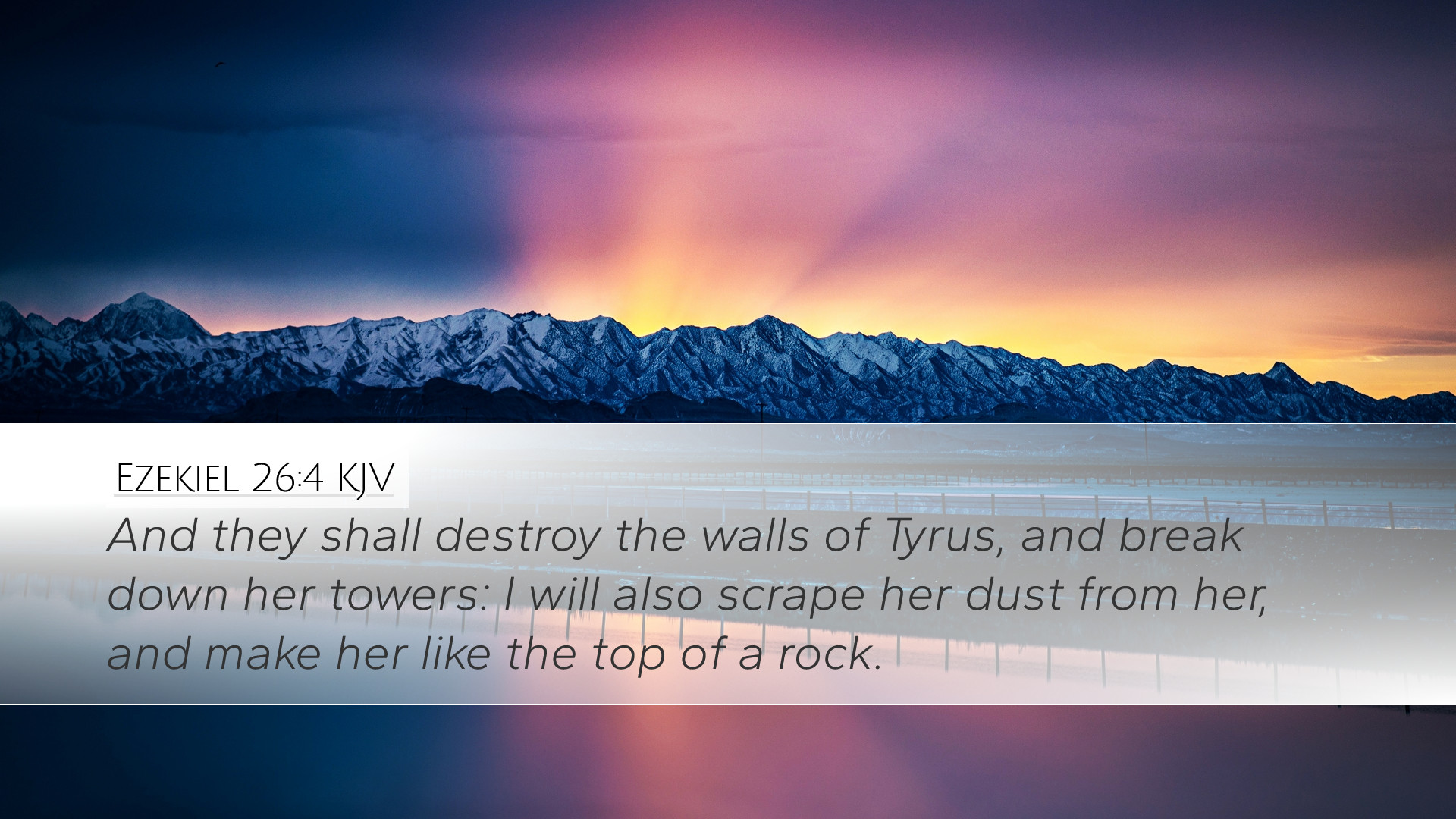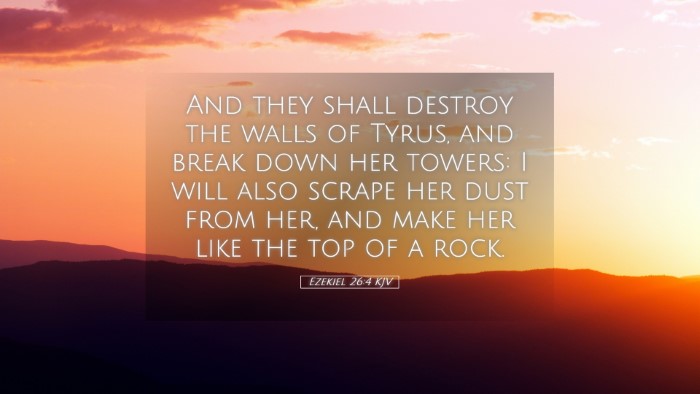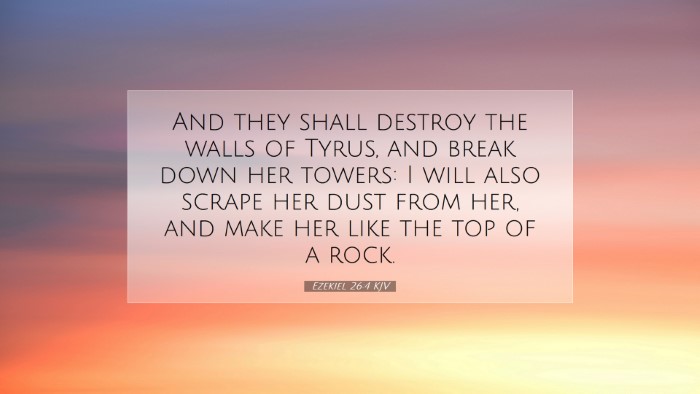Commentary on Ezekiel 26:4
Ezekiel 26:4 (KJV): "And they shall destroy the walls of Tyrus, and break down her towers: I will also scrape her dust from her, and make her like the top of a rock."
Introduction
This passage from Ezekiel’s prophecy concerning Tyre encapsulates the profound judgment that God pronounced upon this ancient city. Tyre, known for its wealth, trade, and fortified structures, symbolizes human pride and reliance on commerce. The verse captures the essence of divine retribution, as it foretells the destruction that will come upon Tyre, illustrating God's sovereignty over nations.
Summary of Key Themes
- Judgment Against Pride: Tyre’s arrogance in its economic prosperity has drawn God’s ire.
- Divine Sovereignty: This prophecy underlines God’s authority not only over Israel but also over all nations.
- Destruction and Humility: The imagery used communicates a complete desolation; a stripping away of the proud structures of the city.
Insights from Public Domain Commentaries
Matthew Henry’s Commentary
Matthew Henry emphasizes that the prophecy against Tyre speaks to the ultimate downfall of those who trust in their own power and resources. Tyre, a city renowned for its strong fortifications and strategic commercial position, was lifted up in pride. Henry suggests that God’s purpose in this judgment was to demonstrate that regardless of a city’s strength, it cannot stand against divine will. He points out that “they shall destroy the walls of Tyre” implies the complete dismantling of its defenses, revealing the incapacity of human strength when facing divine judgment.
Albert Barnes’ Commentary
Albert Barnes elaborates on the method of destruction described in the verse, interpreting it not only as a physical razing of the city but also as a stripping away of its cultural and commercial identity. He connects the prophecy with historical events, citing the eventual conquest of Tyre by Nebuchadnezzar and later Alexander the Great, affirming that these events played out as foretold. Barnes highlights the phrase “I will also scrape her dust from her,” explaining that this represents a total eradication. The city would essentially be reduced to nothingness, “like the top of a rock,” which serves as a metaphor for utter desolation devoid of life.
Adam Clarke’s Commentary
Adam Clarke reflects on the implications of God’s pronouncement of judgment against Tyre. He mentions the city’s wealth and thriving trade, suggesting that this lead to excessive pride and a false sense of security. Clarke asserts that despite Tyre's power, it was subject to God's sovereign will, stressing that “the stones of the wall shall be thrown into the sea.” He notes that the imagery of scraping dust correlates with a process of total annihilation, a grim reminder that no city can escape divine justice. Clarke highlights the significance of God’s judgment as a warning to all nations regarding the consequences of pride and rebellion against Him.
Spiritual Lessons for Today
- Humility Before God: Tyre’s story serves as a cautionary tale for individuals and nations alike, warning against pride and self-sufficiency.
- God’s Judgment is Sure: The ultimate accountability to God reminds us that divine justice will prevail, urging us to walk righteously.
- Hope in God’s Sovereignty: For believers, even in the face of calamity, the sovereignty of God offers comfort, assuring that He is in control of all events.
Conclusion
Ezekiel 26:4 encapsulates the sobering reality of God's judgment against Tyre, transforming it from a bustling symbol of pride into a desolate reminder of the futility of reliance on human strength. Through the insights gleaned from the commentaries of Matthew Henry, Albert Barnes, and Adam Clarke, we see the deeper truths regarding pride, divine sovereignty, and justice come to light. As students and pastors reflect upon this passage, it invites an earnest introspection not only about the nature of judgment but also about the integrity and humility required in our walk of faith.


